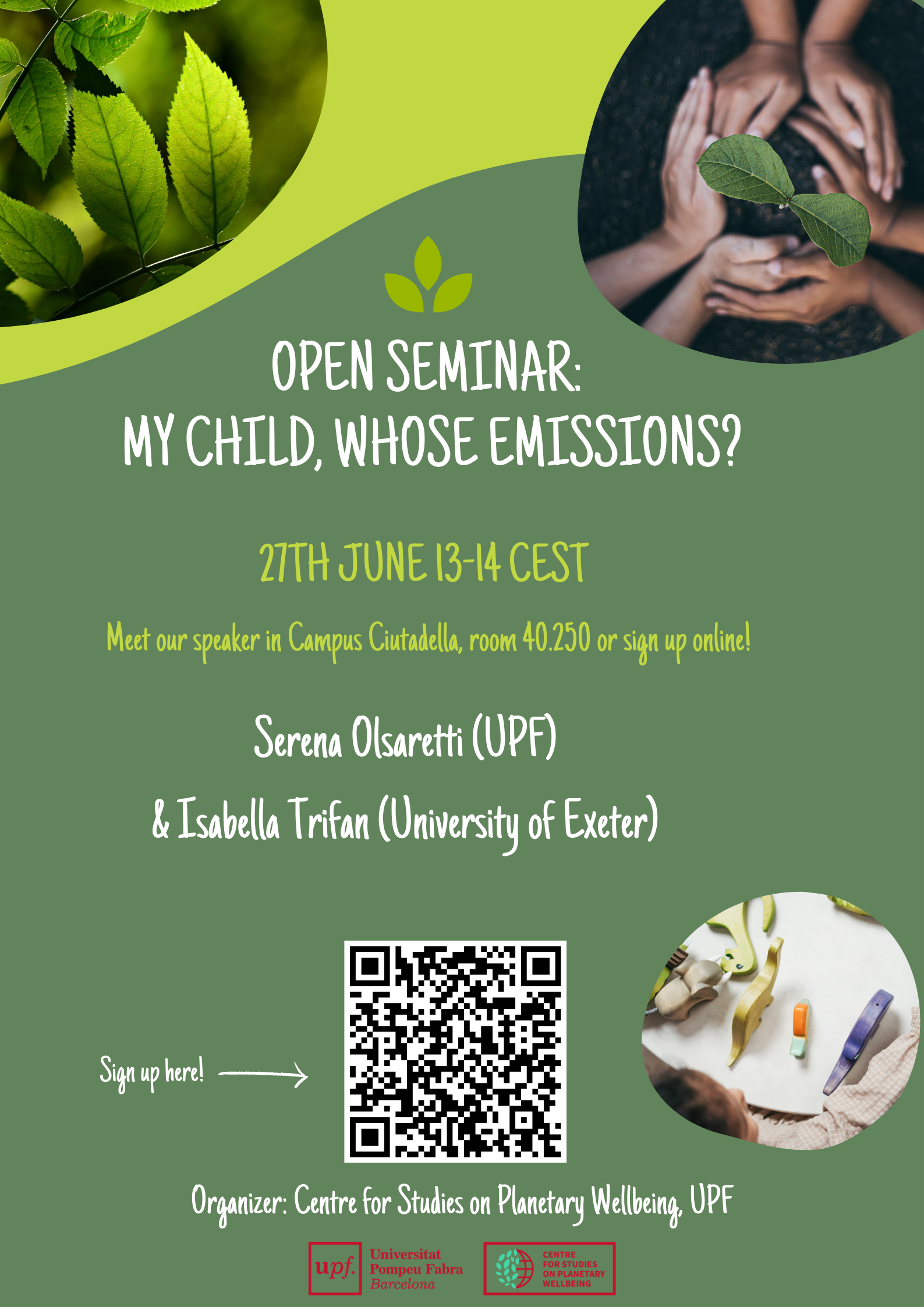Planetary Wellbeing seminar "My Child, Whose Emissions?"
"My Child, Whose Emissions?"
Date and time: June 27th 2023, 13:00-14:00h CEST
Location: UPF Ciutadella Campus, Room 40.250 or register to attend online here
Speaker: Serena Olsaretti (Department of Law, UPF) & Isabella Trifan (University of Exeter)
Summary: The Moral Equivalence Thesis states that procreation and conspicuous overconsumption are morally on a par, and that both are impermissible (Young 2001, MacIver 2015). This argument presupposes some version of The Footprint Thesis (as coined by Pinkert & Sticker 2020). The Footprint Thesis states that the carbon footprint of procreative choice includes some or all of the emissions of any resulting child and possibly some or all of their descendants’ carbon emissions, such that these emissions count as the procreator’s carbon footprint.
The aim of this paper is twofold. First, we subject to close scrutiny the Footprint Thesis and show that, although it is in part an empirical claim, it is also importantly informed, in ways we explain, by moral assumptions. There are different versions of the Footprint Thesis, depending on different moral assumptions. Bringing these assumptions to view is necessary, as, absent a justification of them, our favouring any one version of the thesis over competing ones remains arbitrary at best and unjustifiable at worst.
Second, we argue that we can consistently endorse, and should endorse, not one but two versions of the Footprint Thesis, depending on what particular moral task we are embarked on. We focus on two such moral tasks. The first concerns situations in which an individual who can freely choose whether to have a child is embarked on deciding whether to do so, in highly non-ideal conditions which are impossible to change in the relevant time-frame. We argue that the version of the Footprint Thesis that is defensible in this context is inappropriate, by contrast, where the task we are embarked on is that of formulating institutions-guiding principles concerning what the ideally just distribution of the environmental costs of demographic renewal are, between parents and non-parents and between different generations.

